And Ruth said, Intreat me not to leave thee, or to return from following after thee: for whither thou goest, I will go; and where thou lodgest, I will lodge: thy people shall be my people, and thy God my God: Where thou diest, will I die, and there will I be buried: the Lord do so to me, and more also, if ought but death part thee and me. . . . So they two went until they came to Bethlehem. . . . in the beginning of barley harvest. (Ruth 1: 16-22)
 By Christine Darg
By Christine DargThe Scroll of Ruth was written when the judges ruled Israel and is read during the Jewish holiday of Shavuot, the Feast of Weeks. The holiday is known in the Christian world as Pentecost, based upon the word fifty, meaning the holiday falls 50 days after Passover.
Ruth is written in the language of love and teaches the great truth that the nations are grafted by faith into God’s family tree.
The loyal legacy of Ruth is a sharp contrast to the lurid exploits of the Judges. Ruth is a lovely epilogue and happily teaches us that there can be beautiful and peaceful episodes during wild and uncertain times, such as we are experiencing today. Despite masks and lockdowns, life goes on, and God grants us our individual oases from the general turmoil. People carry on loving and laughing. Sometimes flowers blossom in the desert and take root in rocks.
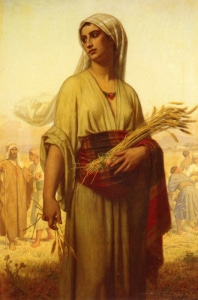 Our text opens as widowed and bereft Naomi prepares to return to Bethlehem after living in the pagan land of Moab where her now deceased sons had married gentile wives. But Ruth proves to be a true daughter-in-love; she clings to Naomi, not willing to be disconnected from Naomi’s God. On the other hand, daughter-in-law Orpah returns to her home and to her gods. According to the commentaries, Orpah embodies the type of person who is “not far from the kingdom of God,” but who falls short of salvation due to a lack of resolve. Alas, Orpah sank back into the pagan world she had once half renounced.
Our text opens as widowed and bereft Naomi prepares to return to Bethlehem after living in the pagan land of Moab where her now deceased sons had married gentile wives. But Ruth proves to be a true daughter-in-love; she clings to Naomi, not willing to be disconnected from Naomi’s God. On the other hand, daughter-in-law Orpah returns to her home and to her gods. According to the commentaries, Orpah embodies the type of person who is “not far from the kingdom of God,” but who falls short of salvation due to a lack of resolve. Alas, Orpah sank back into the pagan world she had once half renounced. The influence of our names in forming faith and character is very great. I can’t emphasize enough how important it is to give our children meaningful names. Ruth’s name aptly means friendship. Naomi’s name means pleasant; her husband’s name was very grand, Elimelech, ”My God is King.” The Hebrew names of their two sons–“weakly” and “wasting–” no doubt described their bodily conditions, for they both died after marriage. Children should be given meaningful names, and from their earliest childhood they should be taught the virtues associated with their names. In every way possible we must try to make a positive influence on their impressionable lives.
Perhaps you know persons who have an account with ancestry.com; they’re always checking out their family trees. Jesus’s genealogy was important because it verifies his messianic credentials. Perhaps the most interesting difference between the genealogies in the Gospels of Matthew and Luke is that Matthew includes four women in his list. They were not all saintly but were strong women of faith! Ruth was the great grandmother of King David and one of the women included in Jesus’s genealogy by Matthew along with Tamar, Rahab and “the wife of Uriah” (Bathsheba).
Hilary, Bishop of Poitiers, made the astute observation that Mary and Joseph belonged to the same clan and so would have common ancestors. He pointed out that Matthew’s genealogy traces Jesus’s “kingly succession” while “Luke set forth in order of priestly origin [Levi].” (Simonetti, NT Ia, 4) I find it that so fascinating because I have a messianic brother in Jerusalem who is always writing about Jesus as being descended not only from David’s kingly line, but also from Aaron’s high priestly office. Indeed, Jesus is not only our coming king, but High Priest is also one of his many titles. Like Melchizedek, He is ordained as a priest apart from the Law given on Mount Sinai (Hebrews 5:6). Like the Levitical priests, Jesus offered a sacrifice to satisfy the Law of God when He offered Himself for our sins (Hebrews 7:26-27). Unlike the Levitical priests, who had to continually offer sacrifices, Jesus only had to offer His sacrifice once, gaining eternal redemption for all who come to God through Him (Hebrews 9:12).
Moreover, Ruth is the prototype of lovers of Zion who cling to the God of Israel and his messiah. The words of Ruth’s kinsman-redeemer husband Boaz, who himself was a type of Messiah, are immortal for all lovers of Zion:
“The LORD repay your work, and a full reward be given you by the LORD God of Israel, under whose wings you have come for refuge.” (Ruth 2: 12)
Boaz’s metaphor is borrowed from a mother hen’s protective outstretched wings and was poignantly used by Jesus when he wept over Jerusalem:
“O Jerusalem, Jerusalem, the one who kills the prophets and stones those who are sent to her! How often I wanted to gather your children together, as a hen gathers her chicks under her wings, but you were not willing!” Matthew 23: 37

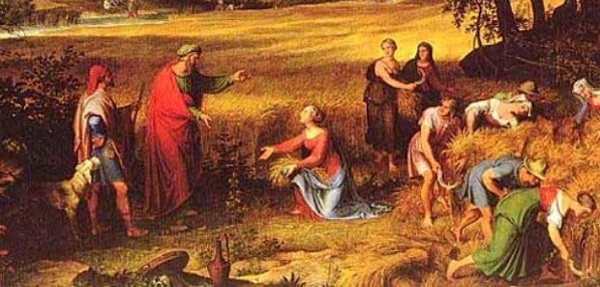
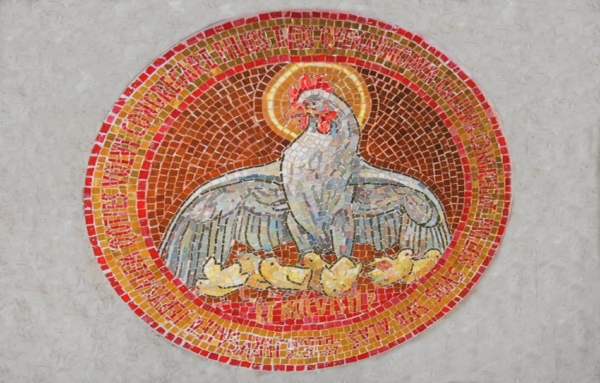


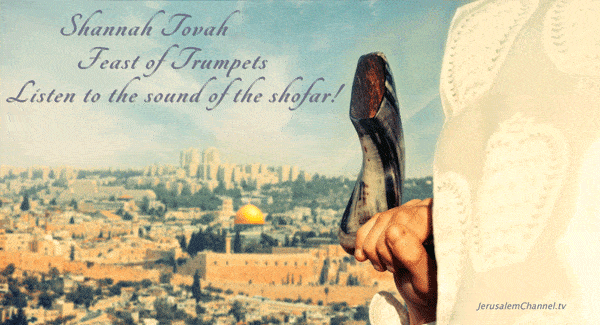
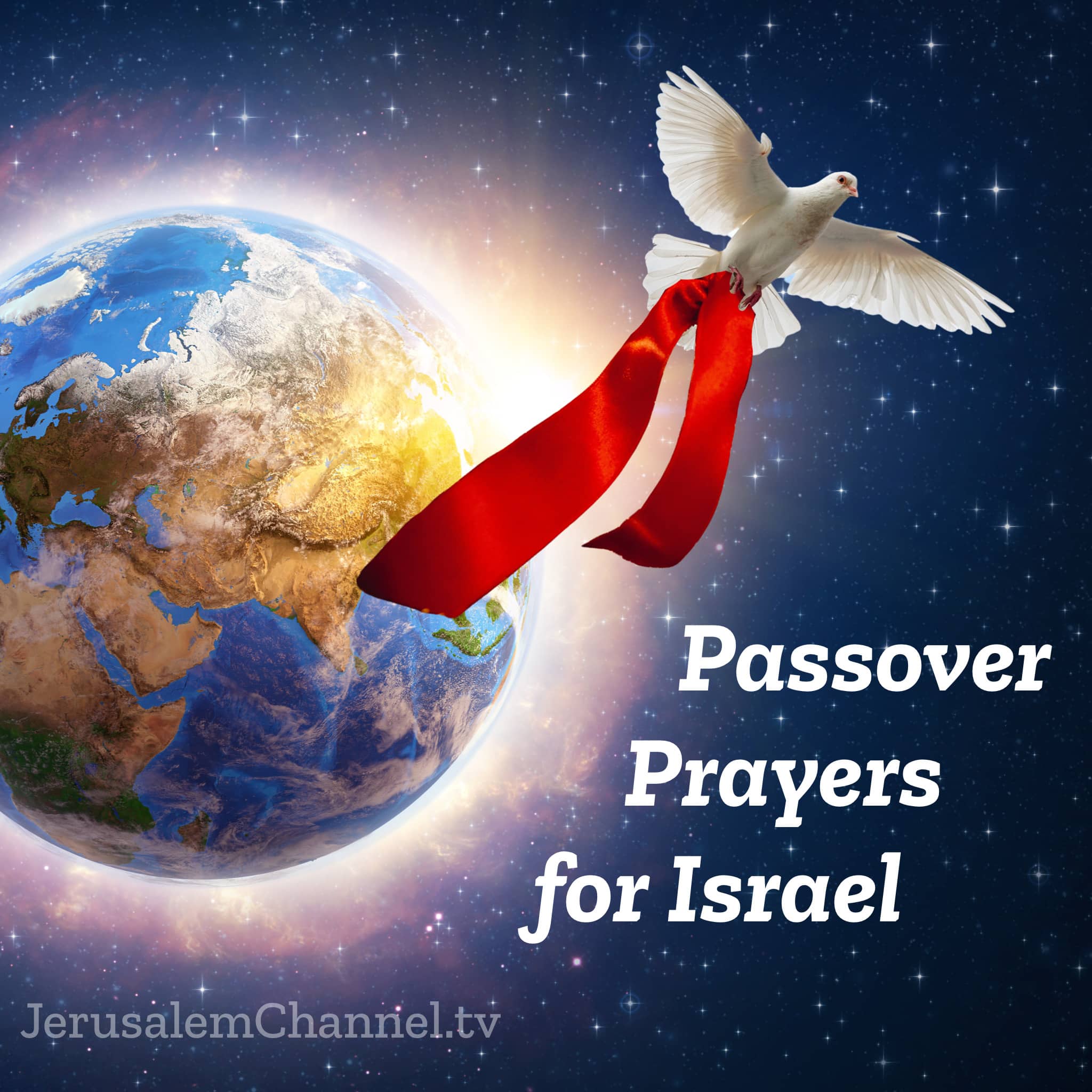
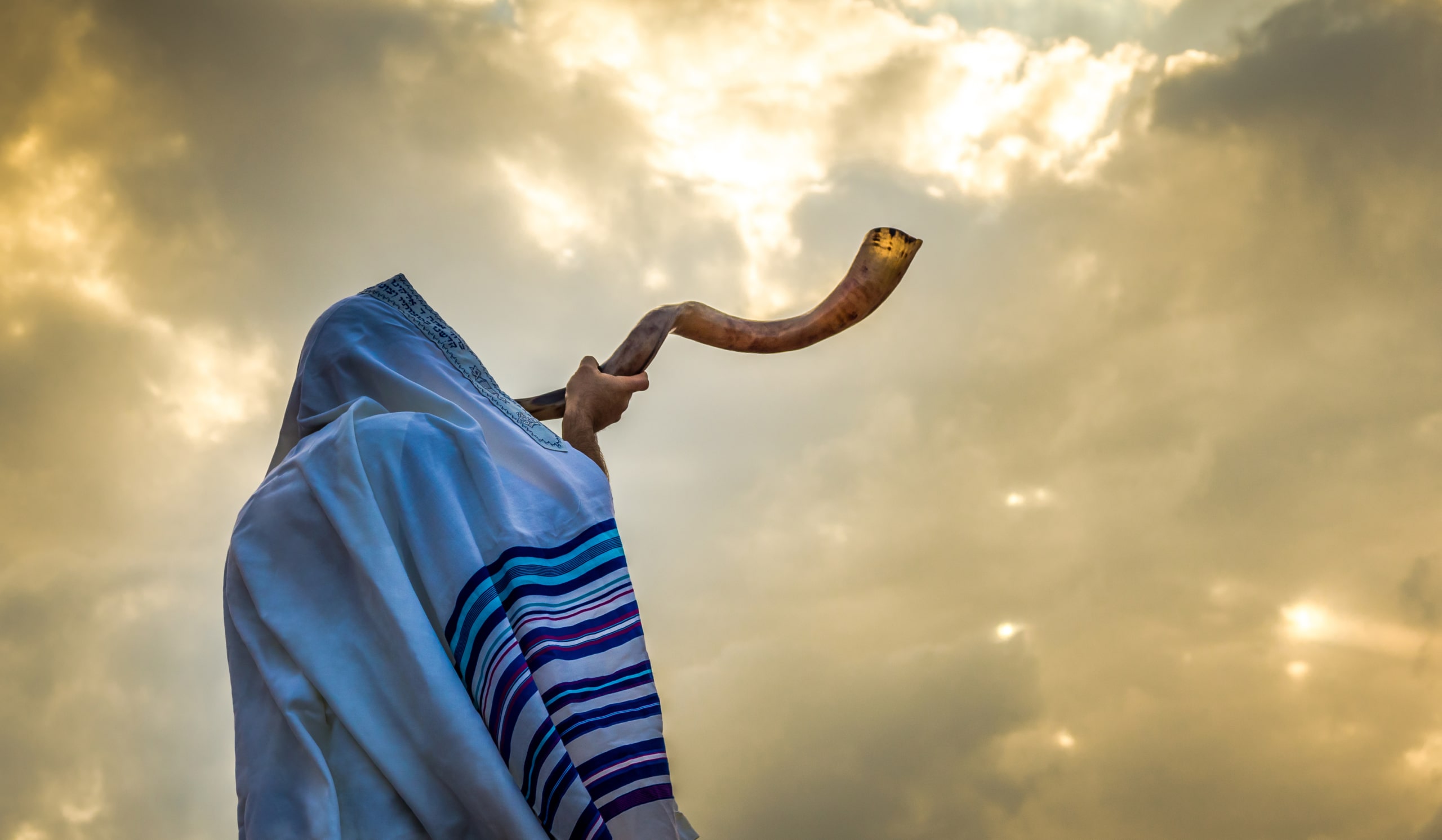
Leave A Comment